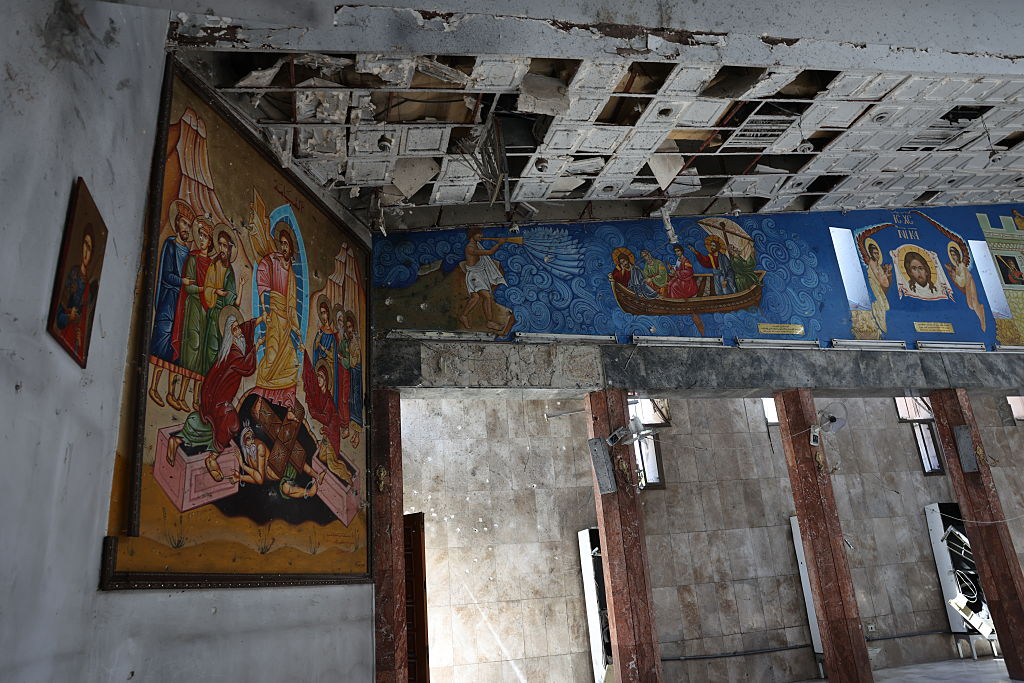
The Islamic State (IS) has returned to the spotlight in Damascus. According to the Syrian Ministry of Interior, the group conducted a suicide bombing on June 22 at a Greek Orthodox church in the Syrian capital, killing at least 25 and wounding more than 60. The bombing marked the group’s first attack in Damascus since the fall of the Bashar al-Assad regime.
Although the new Syrian authorities have thwarted multiple attempts by IS to target religious sites and launched operations to dismantle the group’s networks, the threat persists. Since Assad’s ouster, IS has issued repeated threats against the country’s new leadership and carried out numerous attacks targeting security forces, including one that killed three personnel in May in the Deir ez-Zor countryside of eastern Syria.
Government’s Forces Spread Too Thin
While Syrian President Ahmad al-Sharaa controls a majority of Syria, his forces remain overstretched. Government troops are concentrated in major cities, focused primarily on curbing smuggling into Lebanon and monitoring Assad loyalists along the coast. IS, meanwhile, has entrenched itself in the vast, barren, and remote Badiya region, where the state’s presence is thin. Sleeper cells have also infiltrated major cities. In May, Syrian forces dismantled one such cell in Aleppo, but the danger remains, and it requires precise intelligence to neutralize it effectively. A U.S.-led international coalition continues to fight IS in northeast Syria with the help of local allies but does not operate with the same numbers in Badiya.
Delayed Implementation of Sharaa-SDF Deal
Another factor contributing to the recent surge in IS activity is the delay in implementing the March agreement between Sharaa’s government and the U.S.-backed, Kurdish-led Syrian Democratic Forces (SDF), an integral component of the anti-IS coalition. The agreement called for the SDF’s integration into the Syrian army as a step toward stabilizing the country, yet months later, no meaningful progress has resulted. On June 21, SDF Commander Mazloum Abdi noted, “Military joint committees have started working, but the progress has been minimal, as the government is not serious enough in providing real guarantees to the non-Sunni components, especially the Kurds and the Druze.”
Prior to the Damascus bombing, most IS attacks were concentrated in northeastern Syria — which the SDF controls with coalition support. The delay in implementing the integration deal has provided IS with an opportunity to exploit gaps in security. Sharaa’s forces are overstretched, and integrating the SDF into the Syrian Armed Forces would boost troop numbers in northeastern Syria and reinforce urban centers vulnerable to IS attacks. The suicide bomber in the church attack came from the al-Hol camp — an IS camp still under SDF control — where unresolved issues about future oversight have led to the increase of cells that have operated outside the camp.
U.S. Must Pressure Sharaa and SDF to Implement March Agreement
In April, the U.S. Department of Defense confirmed that it would consolidate and reduce its military presence in Syria, retaining fewer than 1,000 troops under Combined Joint Task Force — Operation Inherent Resolve. Reuters reported that America evacuated two U.S. bases in Hasakah on June 16, bringing the total number of evacuated bases to four in just over a month.
The timing is troubling because IS attacks have surged since the United States began drawing down its forces — from around five per month earlier in the year to more than 15. A premature departure risks creating precisely the kind of vacuum in which IS thrives. The U.S. military has few troops in Syria, but they provide the intelligence, surveillance, and firepower that the SDF needs.
The Sharaa-SDF deal remains stalled because the SDF wants assurances that integration into the national army will not result in Sharaa assuming authoritarian powers over areas the SDF now controls. Conversely, Sharaa does not want the SDF to become a military force independent of Damascus. Given that Sharaa is an interim president whom voters never elected, with few checks on his power, Washington should help resolve the impasse while ensuring the deal promotes balanced cooperation, not Sharaa’s supremacy.
